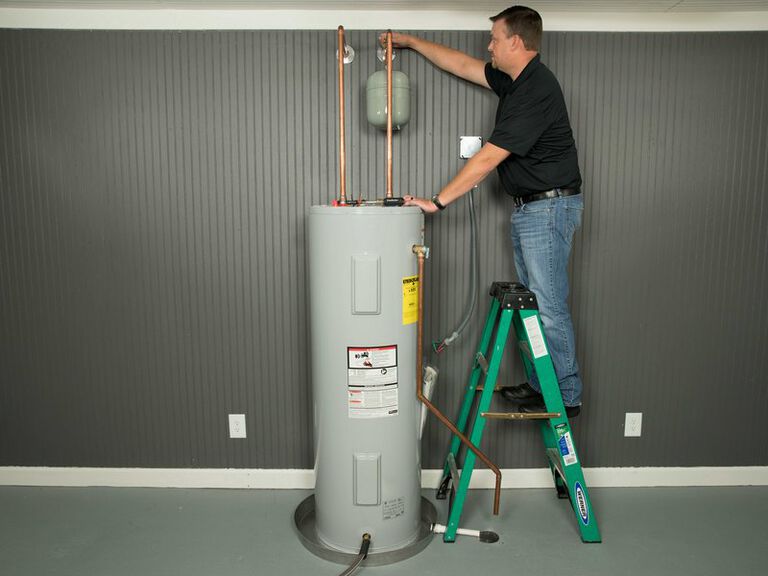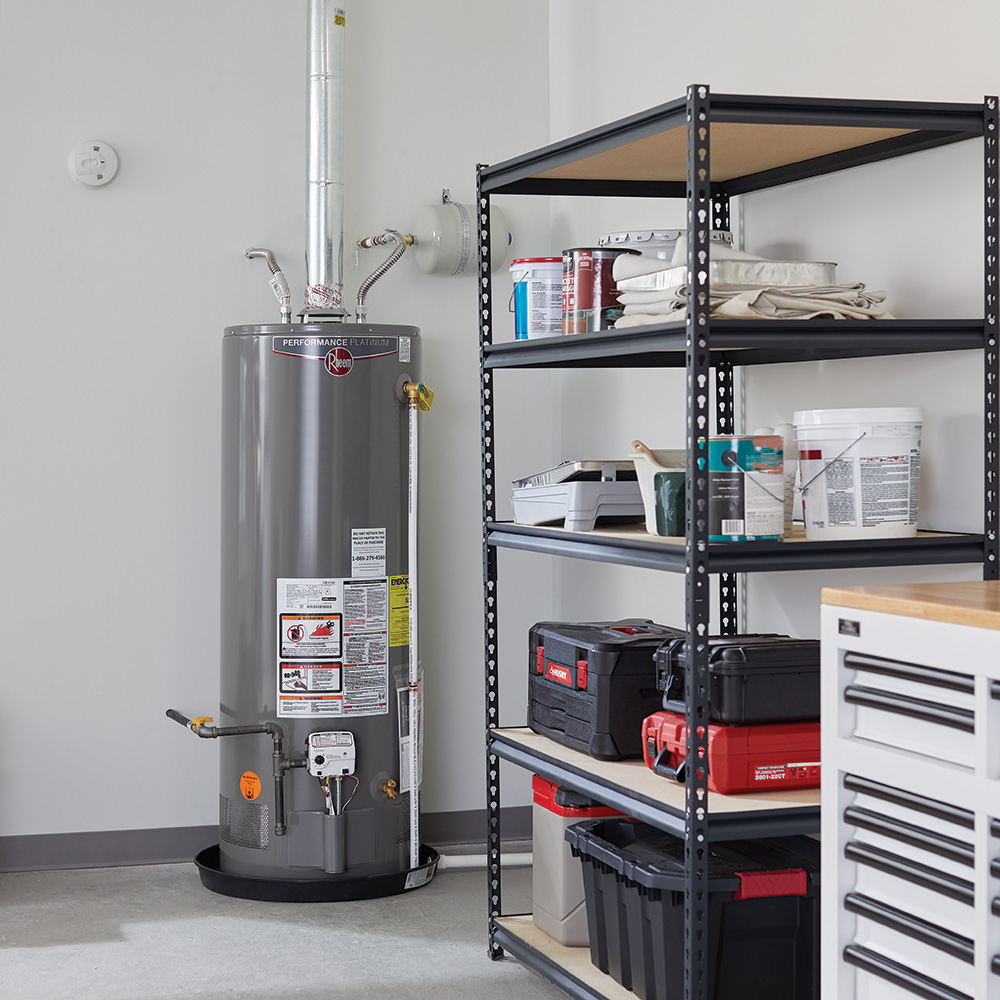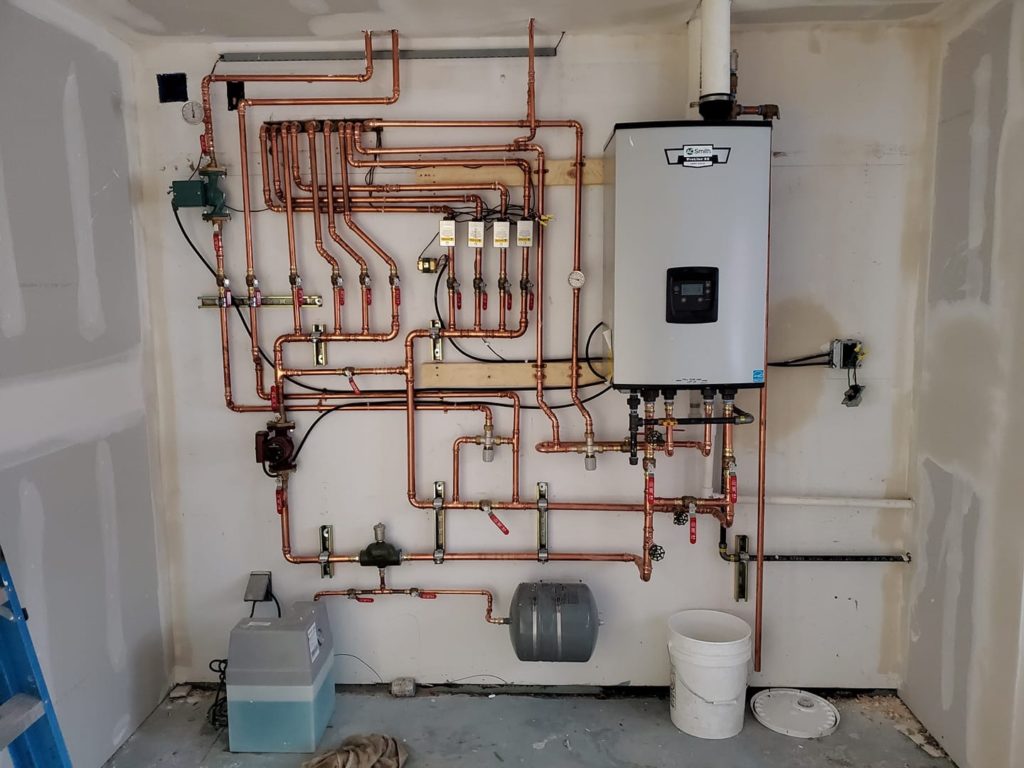Expert Water Heater Installation Services for Consistent Home Heating
Complete Overview to Water HeaterSetup and Substitute
Comprehending the details of water heater setup and substitute is essential for house owners seeking to guarantee effectiveness and dependability in their hot water supply. From selecting the ideal kind and dimension to executing a smooth setup process, several factors should be thought about to avoid common pitfalls.
Kinds of Hot Water Heater
When considering hot water heater installation and replacement, it is necessary to understand the different sorts of water heating units offered in the marketplace. One of the most usual kinds consist of storage tank water heating units, tankless hot water heater, warmth pump water heating systems, and solar hot water heater.
Container water heating systems are typical systems that keep a certain quantity of hot water, making them readily available when required. They are usually more economical upfront but may incur greater power costs gradually as a result of heat loss. In contrast, tankless water heating systems provide hot water as needed, eliminating the demand for storage. They are power reliable and can save area, but their initial costs are usually greater.
Heatpump water heating systems utilize electrical energy to move heat from the air or ground to warm water, supplying significant power financial savings but requiring more area and details installation conditions. Solar water heating systems harness solar energy to heat water, offering an environment-friendly alternative with possible long-term cost savings, although they commonly need a back-up system for over cast days.
Comprehending these choices guarantees informed decisions regarding installation and substitute, providing to details requirements and preferences.
Choosing the Right Dimension
Choosing the ideal dimension for a water heating unit is essential to ensure optimum efficiency and efficiency. A device that is as well small will certainly have a hard time to meet house needs, resulting in inconsistent warm water accessibility and enhanced power usage. Conversely, an extra-large hot water heater can cause unnecessary energy waste and greater utility bills.
To determine the appropriate size, consider the family's peak warm water usage. This can be determined based on the variety of owners and their typical warm water needs. A family of 4 might need a water heating system with a capacity of 50 to 80 gallons, depending on the use patterns, such as synchronised showers and laundry.
Furthermore, assess the recuperation rate, which determines just how rapidly a heating system can replenish warm water after it has been utilized. For tankless models, concentrate on the flow price, measured in gallons per minute (GPM), to guarantee it satisfies the house's simultaneous need.

Installation Process Overview

Next, the old device needs to be detached and removed, taking treatment to comply with regional codes and regulations pertaining to disposal. When the old unit is out, the brand-new hot water heater can be positioned in position. This action involves linking the supply of water lines, ensuring that all fittings are leak-free and safe.
After establishing water links, it's vital to connect the power supply, whether electrical or gas, complying with the manufacturer's directions meticulously. When all links are made, the system ought to be filled up with water, and the power can be turned back on. It's essential to check for leakages and ensure the water heating unit is working appropriately prior to completing the setup procedure.
Common Setup Blunders

An additional frequent mistake is disregarding to follow regional codes and regulations. Stopping working to stick to these criteria can not only lead to security threats but may additionally result in costly fines or the requirement for pricey reinstallation.
Incorrect plumbing links are also a common blunder. Stopping working to secure connections or using the wrong sort of installations can cause leaks and water damage. Forgeting the importance of a Continue correct drain frying pan can result in substantial water damage if leaks do take place. Finally, poor insulation of pipelines can result in warm loss, minimizing efficiency. By staying clear of these usual installment blunders, homeowners can guarantee their hot water heater runs securely and effectively, optimizing efficiency and long life.
Maintenance Tips for Long Life
Proper upkeep of a water heater is necessary for its long life and optimum performance. Regular examinations and servicing can prevent expensive repair work and expand the home appliance's life-span. Begin by inspecting the temperature setup; it should commonly be set in between 120 ° F and 140 ° F for ideal power efficiency and safety and security.
Every six months, purge the storage tank to remove debris buildup, which can harm home heating effectiveness and trigger corrosion. To do this, transform off the heating unit, connect a tube to the drainpipe shutoff, and let the water run up until it is clear.
Anode rods need to be checked annually and changed when they are corroded. These rods assist protect against tank rust by attracting destructive components in the water.
Additionally, inspect the stress safety valve on a regular basis to guarantee it is functioning properly. This shutoff is vital for stopping too much pressure accumulation within the container.
Lastly, take into consideration scheduling an expert maintenance check every few years for thorough evaluations and maintenance. By sticking to these upkeep tips, property owners can dramatically enhance the effectiveness, safety and security, and life-span of their water heaters, making sure trusted warm water for why not look here several years ahead.
Verdict
In verdict, proper setup and upkeep of hot water heater are crucial for making certain performance and longevity (water heater installation). Picking the suitable type and size, sticking to setup guidelines, and staying clear of typical mistakes substantially add to optimum efficiency. Regular maintenance checks and specialist servicing aid endure performance and avoid pricey fixings. By recognizing these necessary elements, homeowners can attain a reliable warm water supply while lessening prospective issues connected to water heating system operation.
Recognizing the details of water heating system setup and replacement is essential for property owners seeking to guarantee effectiveness and integrity in their warm water supply.Storage tank water heating units are standard systems that store a particular volume of hot water, making them readily offered when needed. In comparison, tankless water heating units provide warm water on demand, getting rid of the need for storage. Choosing a water heating unit that is either useful site also small or too big can lead to inadequacies, resulting in inadequate hot water supply or extreme power intake.
By understanding these necessary aspects, property owners can accomplish a reliable hot water supply while decreasing possible issues related to water heating unit procedure. gas leak repair.